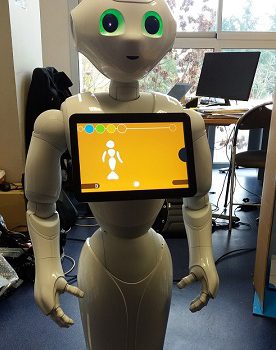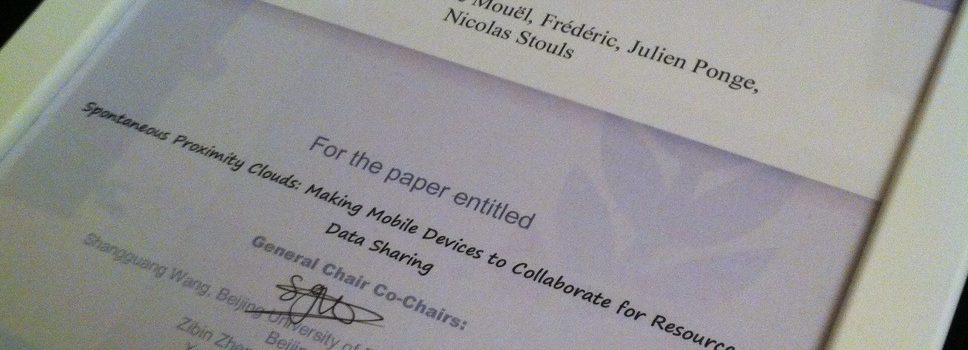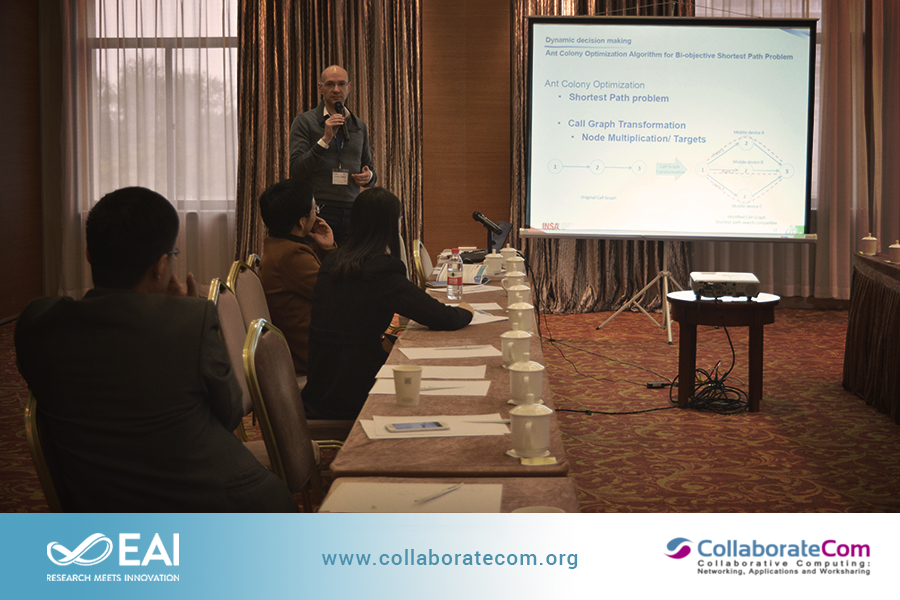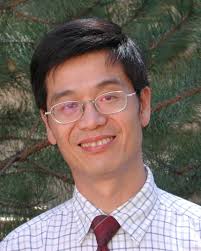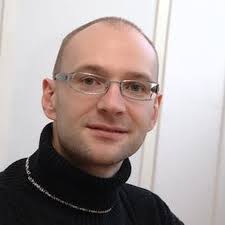
The defense will take place on Monday 28th November at 10:00 in the Chappe amphitheatre, Chappe Building, INSA Lyon.
Jury
Reviewers
Pr Thierry DELOT, Valenciennes University
Pr Daniel HAGIMONT, ENSEEIHT
Pr Michel RIVEILL, Nice Sophia Antipolis University
Examiners
Pr Isabelle GUÉRIN LASSOUS, Claude Bernard Lyon 1 University
Pr Fabrice VALOIS, INSA de Lyon
MCF Philippe ROOSE, Pau et Pays de l’Adour University
Abstract
Combined with the development of middleware in the 1990-2000, the Ambient Intelligence has shaped the 2020 scenarios. With a growing number of devices, smartphones, sensors, connected watches, glasses, etc., these scenarios however suffer. With increasing constraints of energy consumption, size and mobility, the deployment, management and programming of these environments have become greatly complex. Middleware present good properties of abstraction – allowing modularity and an efficient reuse – and interconnection – allowing openness and safety of systems. Hence, they play a paramount role in the current deployment of the Internet of Things.
During last years, my contributions have focused on studying, finding solutions to three middleware issues in this context: dynamism, scalability and autonomy. Several platforms have been developed to validate the scientific and technologic choices performed. Jooflux and ConGolo are JVM-based approaches integrating dynamism in-application, either explicitly with ConGolo contextual programming, or implicitly with transparent aspect weaving of Jooflux. AxSeL, ACOMMA and MySIM are service-oriented approaches capturing the dynamism with dynamic and contextual service loading/unloading, collaborative execution, and semantic QoS-based service composition. CANDS allows to manipulate and manage very important information flow on very large service graphs while preserving millisecond-response time. Pri-REIN improves it with quality of service.
An important result has been to show that the autonomy property is strongly correlated with the middleware application domains, and was particularly tested in smart cities with guidance application, in-street parking management and traffic optimisation.
These works have strongly been supported by five defended thesis.
For future works, I will consider specific IoT issues to reduce the human intervention: large-scale initial deployment, safe and secure management, and distributed au autonomous decision-making inferring locally a global behaviour – i.e. Small Data.

